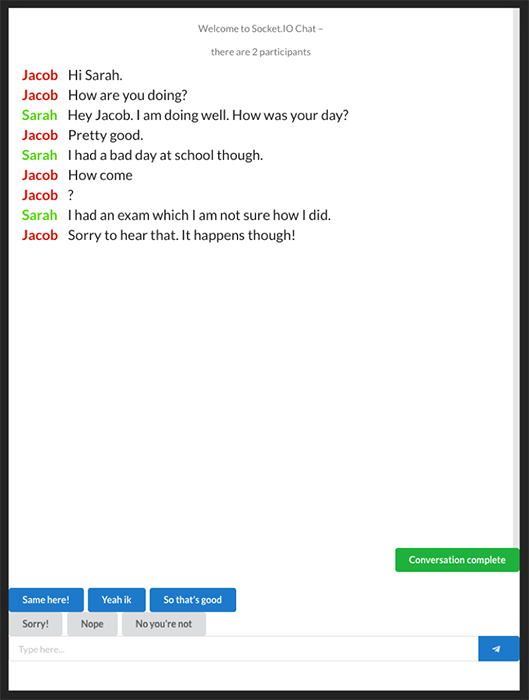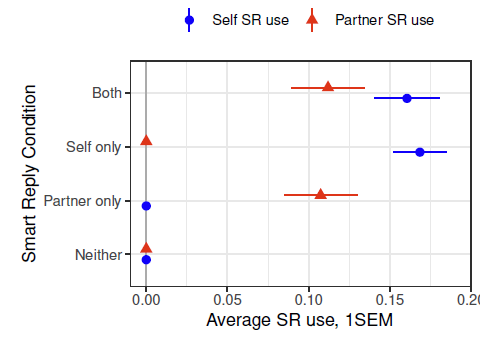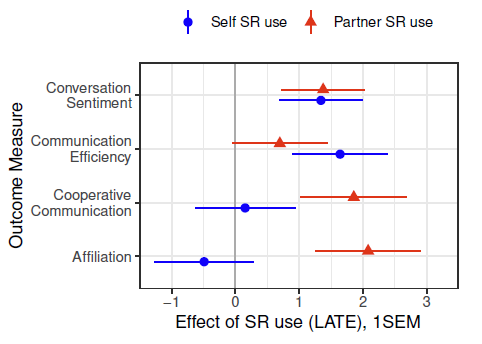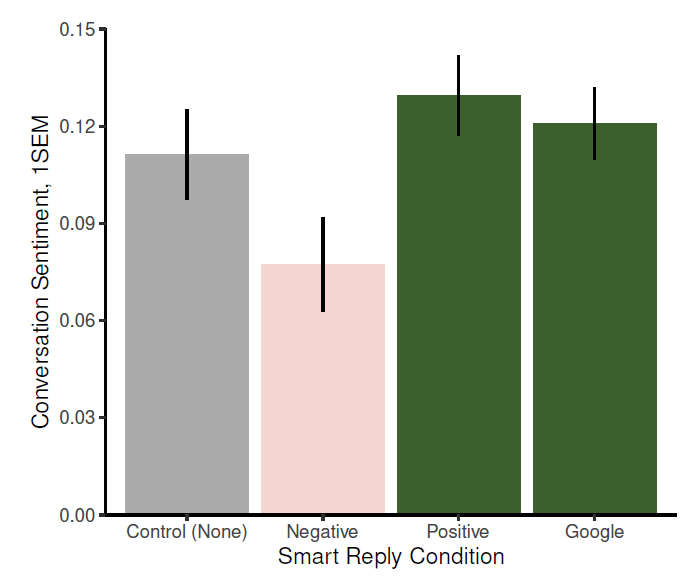AI in Communication Impacts Relationships and Language
As AI sees dramatic increases in use, it is critical to understand its impact on social life. Through two large-scale online studies, we investigate the social consequences of using AI in communication.
Methodology
We ran a remote experiment that incorporated our own messaging app with an online survey.

• The first study investigated interpersonal effects of AI through three conditions: 1) both participants can use smart replies (i.e., suggested responses generated using the Google Reply API ), 2) only one participant can use smart replies, or 3) neither participant can use smart replies
• The follow-up investigated linguistic effects of AI through four conditions: with Google smart replies, positive smart replies (i.e., participants receive suggested responses that have positive sentiment, as rated by crowdworkers), negative smart replies (i.e., participants receive suggested responses that have negative sentiment, as rated by crowdworkers), or no smart replies
• In the first study, participants rated how much they believed their partner had used smart replies and filled out the Perceived Cooperative Communication scale and Revised Interpersonal Adjective Scale (IAS-R)
Main Findings
People use smart replies when given the opportunity, and this increases the efficiency of communication and leads to more emotionally positive language.


AI language sentiment affects the emotional content of conversation.

Recommendations
While AI has the potential to help people communicate more efficiently and improve interpersonal perceptions in
everyday conversation, users should be cautioned that these benefits are coupled with changes to the emotional aspects of
their language and a corresponding potential loss of personal expression.
Designers of AI systems could potentially affect
conversational dynamics and outcomes by carefully controlling the linguistics of smart replies that are shown to users (example).
Perceptions of AI in communication are at odds with actual effects, and future work is need to determine how developers can improve these perceptions.
• Users of messaging apps that feature smart replies currently get no information about how these messages
are generated, which could be increasing their uncertainty about and negatively affecting perceptions of AI
• If users are given background information or real-time feedback on how the AI works, this could
alleviate some of the negative perceptions of smart reply use that we have seen
• The amount
and type of information that needs to be disclosed for such a system to be considered sufficiently transparent warrants further
investigation
